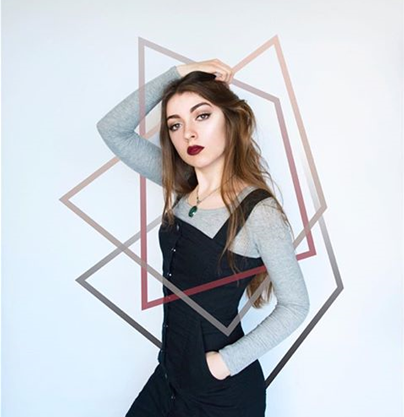Some writers get frustrated by writing category stories, meaning stories that demand a precise formula. Some people even have the unmitigated nerve to criticize authors writing these stories as somehow not as talented as people who write books with fewer restrictions.
I think both types of authors possess abundant talent, but today I will focus on writers targeting the genre market.
A genuine talent genre writers must employ is writing inside the box, yet tapping their hands against the box. Write to the rules the reader expects, but offer a unique story. For instance, readers of romance novels expect, in the end, that the couple will walk into the symbolic sunset, assured they will live happily ever after. No romance novel ends up with the hero and heroine realizing they should break up and marry other people. Many a great book can end this way, but a story with this solution is not a genre romance. Writers of any genre cannot break the rules of their type and still label the story as such. Whatever you’re writing, be sure to understand where it fits in the marketplace and, therefore, how to market it.
Writing within a formula but still offering a unique story is challenging. Here are a few ideas that may help:
- Give one of your characters an unusual career that affects the story.
- Set your characters in a different, yet familiar setting. That setting can be your hometown. Your hometown won’t be exotic to you, but most of your readers won’t know about it, so they will feel that it’s new.
- Set the story so it’s affected by an unusual event.
Authors create new ways to make classic stories special every day. Have fun as you think of the best ways to appeal to your reader.
Your turn:
What genre story have you seen that felt fresh to you? Why?
What is your favorite genre to read? Why?
What suggestions can you share?



 Your Comparisons Section Is Your Friend
Your Comparisons Section Is Your Friend

Contemporary women’s fiction. Thanks for your comment “yet tapping their hands against the box.” Brilliant!
If you want to rule your category,
see books fly of the shelves,
just tell an honest story
in which people find themselves.
Don’t make heronines Olympic
athletes, most folks can’t relate,
nor set them on ‘Titanic’,
an iceberg for to wait.
Just give them the common cares
with a splash of crisis,
without baubles, without airs,
nor contrived devices,
thus to let your readers feel,
This could be me; this is so real!”
Perfection as usual, Andrew! You always make me see things in a different way and/or bring a smile.
Linda, I am so honoured by your affirmation.
You made my day. Truly.
My favorite genre is probably YA. I love the fast pace and snotty teenage protagonists! One Christian YA that stood out to me was Fawkes by Nadine Brandes. Yes, it had a teen protagonist who had daddy issues and magic and peril, but she set it during the gunpowder plot in England and that shook everything up. Very fun! In the general market, I enjoyed Cinder by Marissa Meyer. It is a Cinderella retelling. You might think, been there done that, but no this is different. Cinder is a cyborg in a culture where cyborgs (since they got a second chance at life by being given robot parts) are considered sub-human. There is an evil queen who rules a colony on the moon and our girl is a talented mechanic who leaves her foot at the ball instead of her shoe. So so unique and yet a story we know and love.
I like historical where there’s a romance woven into the plot, but that romance isn’t the whole point of the plot. For the romance part, I want serious initial conflict that grows into commitments with emotional and spiritual depth that leave the reader with a satisfied “aaah,” not swoony kisses, even of the clean kind. That’s what I write, too. Does that even qualify as a genre since there aren’t any formulaic expectations?
Probably not, Carol. Happy writing!
Carol, I love to read and I also write that same non-genre you described. If Carrie Stuart Parks didn’t include such nail-biting suspense in her books, I think they would qualify, too, but they’re identified with the suspense genre. Do you think we could lobby for a new genre called Christian women’s fiction with romance?
I recognize that model 🙂 Great post and pic!
Tamela,
This is so encouraging! The 4th beta reader of my last book just reported yesterday that she considered it “perfect,” and it fits all three of your bullet points! Several years ago you explained the difference between Women’s Fiction and Romance to me in a way that made perfect sense and has impacted my writing ever since. Your definitions helped when I wrote to the EXTREMELY specific and limiting requirements for Hallmark books and stories they adapt for movies. My story was rejected, but I don’t know if I didn’t get the romance part right (like Carol, I’m a women’s fiction writer at heart) or if perhaps I had too many different airports in the scenes. (One Hallmark criterion is that if adapted for a movie, it must be easy to shoot.) With three, I may have had two-too-many airports! ;-D
Answering your questions: I loved all four of Carrie Stuart Parks’s books in the Gwen Marcey series. They are fresh and real because of the smart, career- woman MC’s flaws and struggles and growth, personal, physical, and spiritual. I like (1) suspense like hers because it stops before it reaches the horror line and (2) historical fiction because I love history and have studied, taught, and written about it. I contribute to a history column in our city’s newspaper. A suggestion? Determine the genre that is your “wheelhouse” and write in it. Writing is hard enough without trying to squeeze yourself into a genre that doesn’t fit.
I enjoy romance, but I don’t want it to feel too “formulaic.” I do like a happy ending, however.